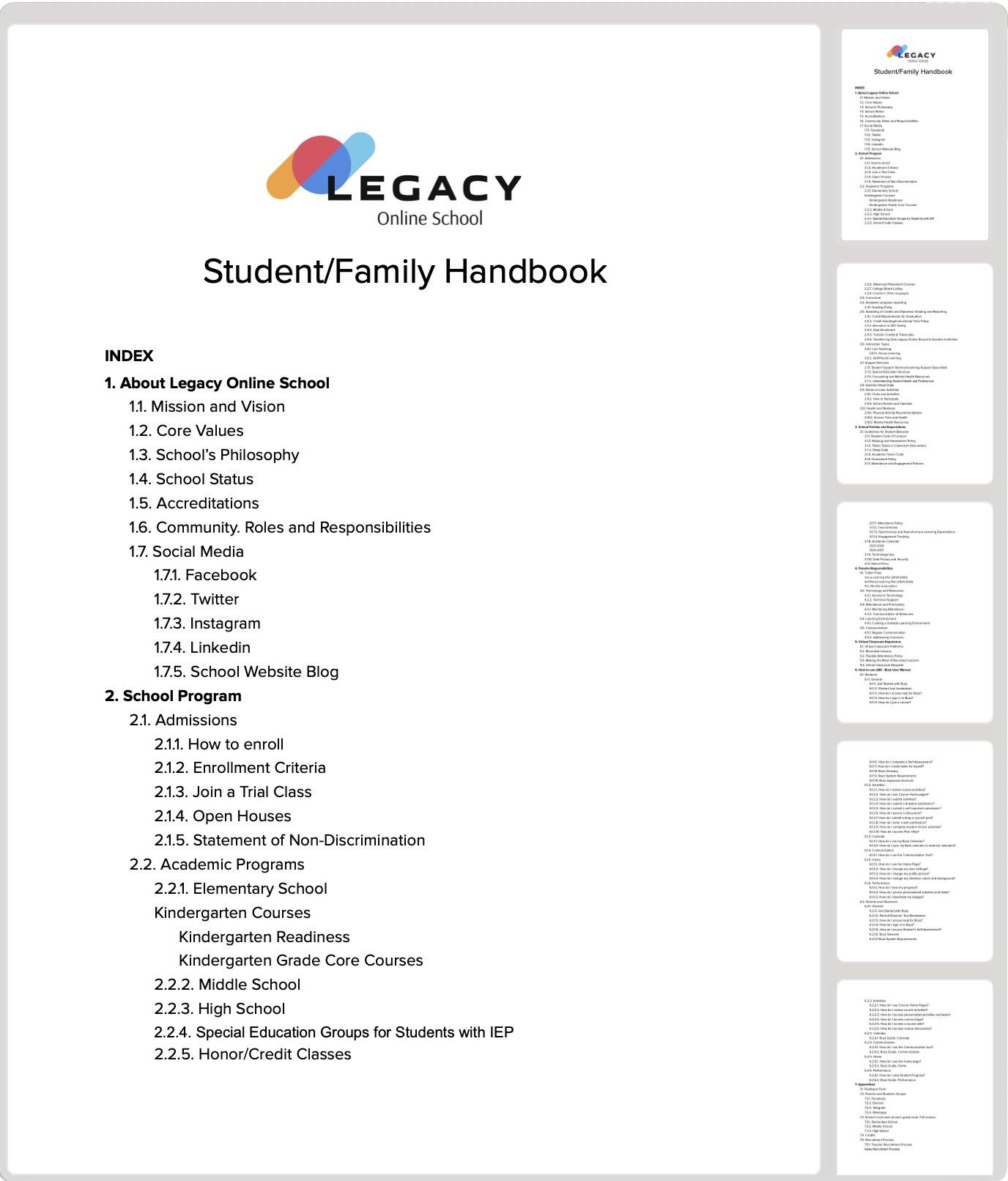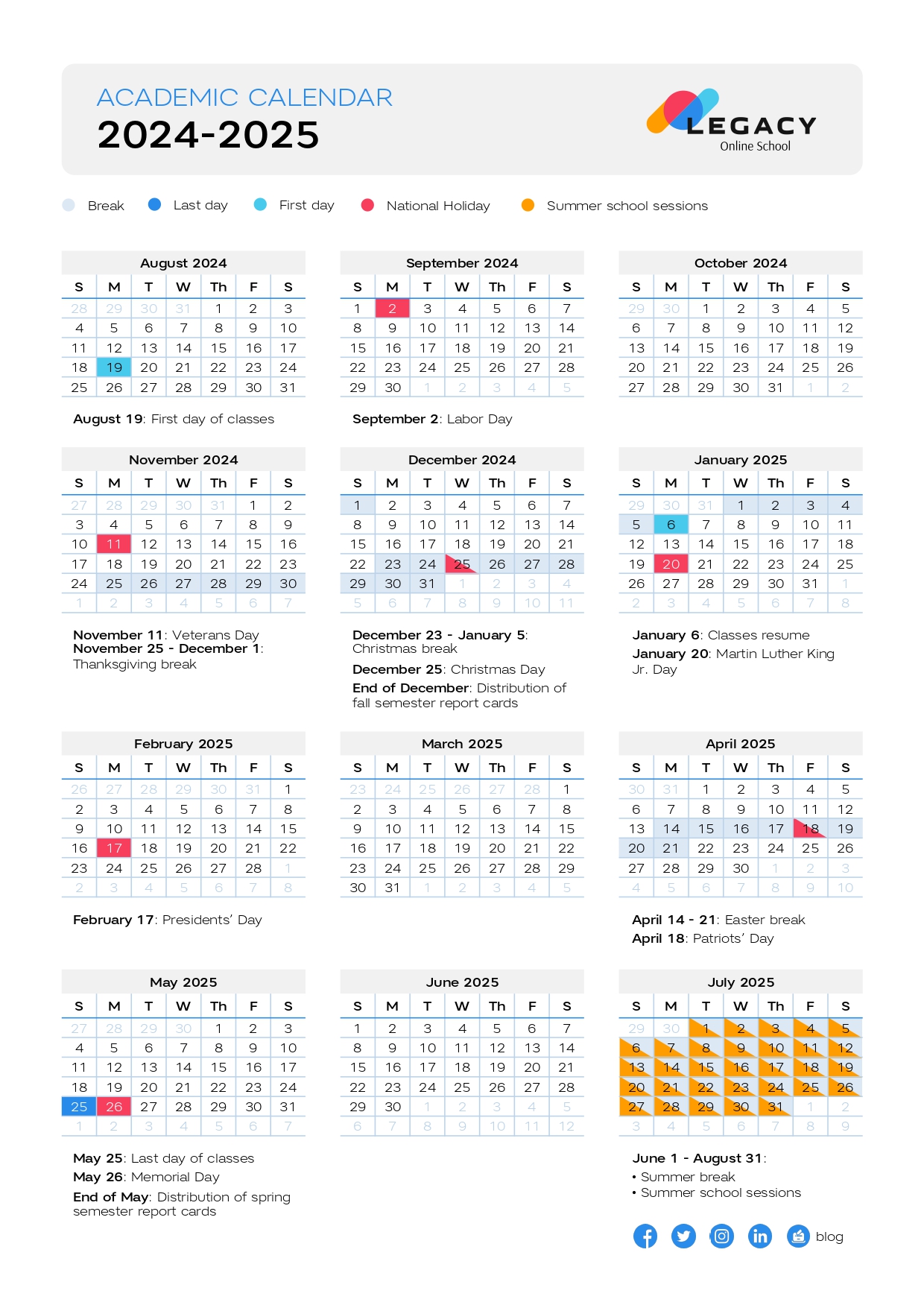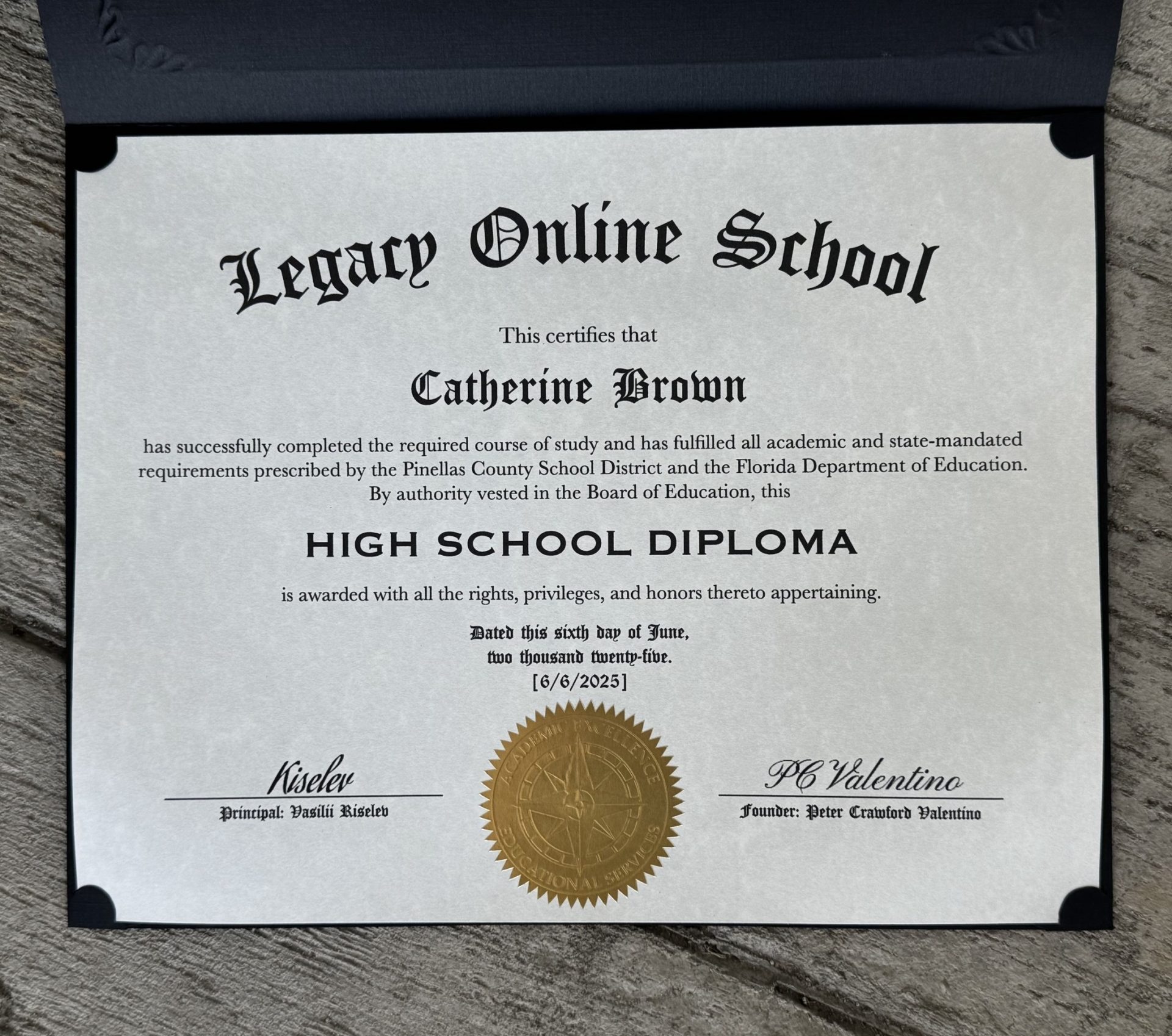Accredited Online Middle School: K-12 Online School Programs
Accredited online middle schools prepare middle school students for transitioning to high school without the need to attend a physical school. We will provide more details about these schools.
What Is an Accredited Online Middle School
Let’s look at why accredited status plays an important role for such schools.
Why Is Accreditation Important for Online Middle Schools
Students have access to many online programs to choose from, but not all of them offer good quality. Accreditation of an online school guarantees the materials provided meet high standards. The knowledge gained from such schools is recognized in the U.S. and other countries.
Schools offering accredited programs also invest heavily in student support, both in terms of technical assistance and academic guidance. Students receive enough attention to overcome any challenges they face.
How Does Accreditation Impact Curriculum Quality
Accreditation guarantees the school administration adheres to the latest U.S. educational standards. An accredited curriculum is tested and updated by educators continuously to help children achieve the best results. This type of curriculum features a high degree of personalization, which plays a crucial role for children with special needs.
What Are the Benefits of Choosing an Accredited Program
Students who choose an accredited program get many benefits. Here are some of these benefits:
- A strong curriculum providing competitive knowledge for high school admission
- Personalization of the curriculum, helping students master the material 100%
- Support from certified teachers
- Skills and knowledge helping in future careers and personal life
- Education is recognized across the entire United States
How Do Online Middle Schools Operate
The work of online middle schools differs from schools of other grades and has its own unique features compared to traditional schools.
What Does a Typical Day Look Like for an Online Middle School Student
A typical day for online middle schoolers begins with learning core subjects like math, science, and language arts. Students take a midday break for lunch and some rest. Kids focus on elective subjects in the afternoon. They complete their tasks and spend their evenings on activities they enjoy. The learning schedule can be adjusted by the students themselves if they wish.
The entire learning process takes place on the school’s online platform, where children access study materials, assignments, and complete them. Students use many other online tools to attend live online classes and communicate with classmates.
How Is Student Engagement Fostered in an Online Environment
The online environment offers many opportunities for kindergarten, elementary, middle, and high school students to use interactive and engaging elements. Children can watch video lessons or take virtual trips to different places. All of this provides an unforgettable immersive experience and increases kids’ engagement in the educational process. Teachers incorporate many gamified elements and team-based activities, which motivate students, create a sense of community, and help them build relationships with classmates.
Online students feel safer and more confident since there is no bullying or other negative behavior, fostering an atmosphere of understanding and mutual support. The online environment builds a community where students can find answers to their questions and connect with like-minded peers.
What Role Do Parents Play in Online Middle School Education
Online middle schools provide teachers and strong support, not requiring active parental involvement. Parents can decide how much they want to participate in their child’s learning. A good approach is to assist the child when starting online learning for the first time, helping them set up their environment and develop a study schedule.
It’s important for parents to remain open to their child’s challenges and assist in solving them as they arise. Parents wishing to take a more active role in their child’s education often maintain regular contact with teachers to understand how the learning process is progressing and identify areas where they can provide additional support.
What Are the Advantages of Online Middle School Programs
Online middle school programs offer many advantages to families. We will explore some of these benefits.
How Can Online Learning Accommodate Different Learning Styles
Children have different learning styles, and this plays an important role in their education. Visual learners study better when information is presented through pictures, diagrams, and videos. Auditory learners excel when engaging in activities involving listening and verbal discussions. Kinesthetic learners prefer learning through hands-on approaches and movement.
Online learning accommodates these differences and allows for diverse curriculums catering to each learning style. It also offers a high level of personalization, with programs adapted to the specific needs of individual students.
What Flexibility Does Online Middle School Offer to Students
Online students have great freedom and the ability to adapt their learning to their needs. Kids have a flexible schedule they can adjust at any time if their life circumstances change and, for example, they want to do something different instead of their usual 2 PM classes.
This flexibility is ideal for working students, traveling families, and children who simply prefer to avoid routine learning.
How Can Online Programs Help Students Prepare for High School
Online programs provide different help. Here are some options from Legacy Online School:
- Advanced Placement (AP) courses
- Honors classes
- Dual enrollment programs
- Science, Technology, Engineering, and Mathematics (STEM)-Focused Curriculum
- Career preparedness and college guidance
Each of these programs is designed to prepare students for the challenges and specifics they will face in high school. Children get a detailed understanding of high school education and the skills helping them handle everything ahead.
What Should You Consider When Choosing an Online Middle School
Here are some factors to consider when choosing an online middle school.
How Do You Evaluate the Quality of an Online Program
The first thing to consider is accreditation. Accreditation ensures the curriculum is of high quality and follows the correct program standards.
Families also check additional factors to determine if the program is a good fit for them. It’s important to assess the level of support provided by the online school. Independent students may require minimal support, but less independent students and those with special needs should receive maximum support, both technical and academic.
Read the program description and see how simple and clear it is. Some programs use complex descriptions, and their courses also are more complicated, making them unsuitable for everyone.
Evaluate the level of personalization provided by the teachers and whether it matches the student’s need for individual attention and guidance.
What Questions Should You Ask Before Enrolling
It is important for students to read the program description carefully. Students contact the representatives of the school offering the program to clarify any doubts if something is unclear. Kids confirm whether the program is accredited and what level of support the school provides. Students may have additional questions depending on their personal needs, and it is crucial to address all of them with the school representatives before enrolling.
How Can You Assess the Support Services Available
The support services provided by the school are divided into three components: technical support, academic support, and support for students with special needs.
Technical support involves assistance from the school with any issues related to learning on the platform. Students should clarify which specific technical issues the school can help with and whether they can contact the school for problems related to their devices.
Academic support refers to help from teachers within the program. Kids can request additional support to have the teacher explain challenging material more clearly if they don’t understand a topic.
Support for students with special needs includes creating personalized learning plans tailored to the unique requirements of these students.
It’s important for students to identify their needs and confirm with the school what type and extent of support is provided. This information is often included in the program description, but if it is missing or vaguely stated, contacting the school directly is essential.
Students can also read reviews on dedicated websites or ask former students about their experience to evaluate the quality of the school’s support.
What Are the Challenges of Online Middle School Education
Online learning in middle school comes with its own challenges. We will explore some of them and provide recommendations on how to address these issues.
What Common Issues Do Students Face in Online Learning
Virtual learning has many advantages, but there are also drawbacks. We discussed the problems children face, especially those new to online learning, and provided solutions to these issues in this article.
How Can Students Overcome Feelings of Isolation
Online students do not attend school physically and spend a lot of time alone. Many students begin to feel isolated from the rest of the world. This feeling can be avoided by chatting with classmates actively, organizing video calls, and going out for walks. Students can arrange meetups with their classmates, spend time together, and prevent such feelings of isolation.
What Strategies Can Help Maintain Motivation and Focus
There are many strategies to help students approach learning with enthusiasm. Сhoose the strategy best suited to the individual student, taking their preferences and characteristics into account. Here are three strategies to consider:
- The first strategy recommends breaking tasks into smaller parts and rewarding yourself for completing them. This approach helps achieve tangible results and maintains motivation
- The second strategy suggests reinforcing theoretical learning with practice, preferably involving physical activities. Students can watch a YouTube video and perform an experiment at home alongside the teacher explaining it
- The third strategy encourages gamifying the educational experience. Gamification can be achieved in different ways. Students often prefer learning platforms already offering gamification, where they earn badges or points for completing lessons
How to Transition from Traditional School to Online Middle School
Here are some tips to help families prepare for their child’s transition from a traditional school to an online middle school.
What Steps Should Be Taken for a Smooth Transition
Families conduct preliminary preparation to ensure a smooth transition for students into an online school. Here’s what families can do:
- Set up a dedicated room specifically for learning. This room should be free of distractions to help the student stay focused on their studies
- Assist the student in organizing their study schedule. It’s preferable to allocate specific hours for studying, making it easier for students to get into the learning mindset
- Communicate with teachers to share any specifics about the student, if applicable, so they can personalize the student’s learning plan
- Arrange meetups with classmates and attend different events to ensure the student doesn’t feel isolated
- Stay in touch with teachers and monitor how the online learning process is going for the student to provide support if necessary
How Can Parents Support Their Children During This Change
Online learning has its own specifics, and for students transitioning to it for the first time, these specifics can be challenging. A common problem is children often lose concentration when studying outside of a traditional school setting. Parents can help by organizing a dedicated, distraction-free space for learning and assisting in creating a stable study schedule.
Another issue is the feeling of loneliness, as students don’t see their classmates physically when not attending school in person. Parents can help by encouraging students to organize meetups with friends or participate in events promoting learning and social interaction. It is also important for parents to be attentive to their children, as they may face different difficulties.
What Resources Are Available for New Online Students
Online schools provide different resources, and it’s worth clarifying these directly with the school representatives. Examples of such resources include online guides detailing all the school’s features, online materials with supplemental content, teacher-designed online simulators, and much more.
Students can also use many free third-party resources independently to help with learning theory, solving practical tasks, and finding answers to various questions. Kids can use Google to search for such resources or ask their online school representatives for a curated list of helpful tools.


















